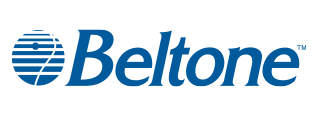Brain Fog and Hearing Loss: What's The Connection?
Many people who experience hearing loss also report feelings of brain fog. But what is the connection between these two conditions? Let us explain how the brain and the ears connect and how hearing conditions can cause brain fog. Learn what you can do to prevent brain fog in the future if you have hearing loss.
The Connection Between the Brain and Ears
Our sense of hearing is a complex process that involves both the ears and the brain. The ears collect sound waves and convert them into electrical signals. These signals are then sent to the brain so that it can process and interpret them.
The brain plays a vital role in our ability to hear. As it processes the sounds we receive from our ears, it helps us to understand and respond to them. If there's a problem with either the ears or the brain, it can affect our hearing. This can lead to various issues, including brain fog.
How Hearing Conditions Can Cause Brain Fog
Brain fog is a term used to describe a feeling of mental cloudiness or lack of clarity. It can manifest as difficulty concentrating, forgetfulness, and confusion. There are several ways in which hearing loss can contribute to brain fog. When you have hearing loss, your brain has to work harder to process and make sense of sounds. This increased cognitive load can lead to fatigue. The more fatigued you become, the more likely you are to develop brain fog.
Hearing loss can also make it harder to communicate with others. This can lead to social isolation, which can contribute to feelings of brain fog. Our brains need social interaction to stay sharp and focused. Studies show that untreated hearing loss can change the brain's structure and function. This can lead to cognitive decline and make brain fog worse.
Preventing Brain Fog in the Future if You Have Hearing Loss
If you have brain fog from your hearing loss, there are ways to help reduce your symptoms. Even better, these tips can help to improve your cognitive health. If you suspect you have hearing loss, get a professional hearing test. An audiologist can determine the cause of your hearing loss and recommend treatments. If you need hearing aids, be sure to always use them. They can reduce cognitive load and improve brain function. Be sure to stay connected with friends and family. Social activities can help keep your brain sharp and reduce brain fog.
Eating a balanced diet and getting regular exercise can also help to prevent brain fog. Try mentally stimulating activities, like puzzles, reading, or learning a new skill. These activities can improve cognitive function and decrease brain fog.
Contact Us
By now, you know that there is a clear connection between brain fog and hearing loss. As your hearing loss worsens, your brain needs to work harder. As your brain struggles to hear the world around you, it leads to exhaustion and even brain fog. If you have brain fog due to hearing loss, don't hesitate to contact our office for help.






